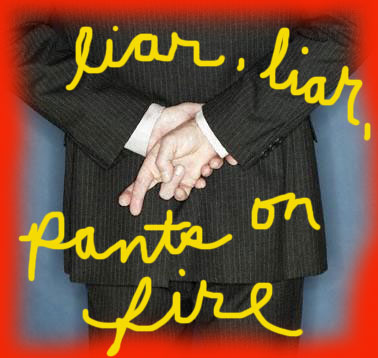In 2005, the Congress passed what is known as the Stolen Valor Act, making it a crime to claim one was a military hero if that doesn’t happen to be true. One can get get six months in jail plus a fine if one “falsely represents himself or herself, verbally or in writing, to have been awarded any decoration or medal authorized by Congress for the Armed Forces of the United States.”
Falsely awarding yourself the highest military honors like a Purple Heart or a Medal of Honor can get you a year in prison under the act.
The law was tested in California when a So Cal politician named Xavier Alverez made extravagant public claims regarding his past as US Marine.
There’s no question Alvarez lied. After winning a seat on Southern California’s Three Valleys Municipal Water District board of directors in 2007, he introduced himself by saying: “I’m a retired Marine of 25 years. I retired in the year 2001. Back in 1987, I was awarded the Congressional Medal of Honor. I got wounded many times by the same guy.”
None of that was true. But a district judge overturned Alvarez’s conviction by declaring the law a violation of the First Amendment. A panel of the 9th Circuit agreed, and earlier this month the full court refused to reconsider the panel’s decision.
In his concurring statement, 9th Circuit’s Chief Justice Alex Kozenski explained in great and often witty detail why, except in certain instances, lying needs to be protected:
So what, exactly, does the dissenters’ ever-truthful utopia look like? In a word: terrifying. If false factual statements are unprotected, then the government can prosecute not only the man who tells tall tales of winning the Congressional Medal of Honor, but also the JDater who falsely claims he’s Jewish or the dentist who assures you it won’t hurt a bit. Phrases such as “I’m working late tonight, hunny,” “I got stuck in traffic” and “I didn’t inhale” could all be made into crimes. Without the robust protections of the First Amendment, the white lies, exaggerations and deceptions that are an integral part of human intercourse would become targets of censorship, subject only to the rubber stamp known as “rational basis review.”
The WaPo also quoted Kozinski:
“We lie to protect our privacy (‘No, I don’t live around here’); to avoid hurt feelings (‘Friday is my study night’); to make others feel better (‘Gee, you’ve gotten skinny’); to avoid recriminations (‘I only lost $10 at poker’),” Kozinski wrote recently in a case about an inveterate liar named Xavier Alvarez who, just to drive home the point, is also known as Javier Alvarez.
Kozinski listed 28 other reasons we avoid the truth, including to “avoid a nudnick” and to “defeat an objective (‘I’m allergic to latex’),” and ending sweetly with “to maintain innocence (‘There are eight tiny reindeer on the rooftop’).”
Kozinski’s entertaining treatise was in service to his point about the Constitution.
“If all untruthful speech is unprotected . . . we could all be made into criminals, depending on which lies those making the laws find offensive,” he wrote. “And we would have to censor our speech to avoid the risk of prosecution for saying something that turns out to be false.
“The First Amendment does not tolerate giving the government such power.”
The issue is expected to eventually make its way to the Supreme Court.
You can read Kozinski’s full—and very entertaining—statement on the essential nature of lying starting on page 14 of the 9th Circuit panel’s order.


Untruthful speech is with First Amendment protection? Depends on what situation you are in. If your situation is between life and death, untruthful speech in that case should be protected. Look at Muslim.. They will behead your head, torture you, abuse you, even rape you (sex identity does not matter) if you tell them truth. That is scary feeling knowing they would do that. so that is why I said Untruthful speech should be protected in a special circumstances.
Clearly the US prison population is not large enopugh for some.